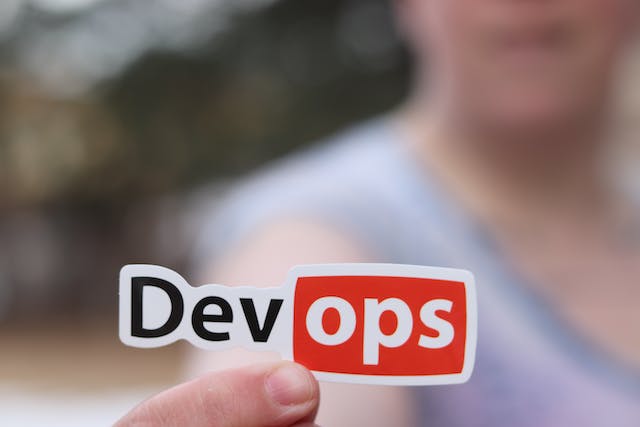The advent of DevOps has fundamentally transformed software development and IT operations. By bringing these two functions together, DevOps enables companies to maximize the value generated by their engineering teams. However, embarking on a DevOps transformation without experience and guidance can significantly slow progress and adoption. DevOps consulting services provide the expertise and perspective required to smoothly transition organizations to DevOps.
In this comprehensive guide, we dive deep into how DevOps consultants can architect and accelerate your transformation journey.
Why Bring In DevOps Consulting Services?
Here are the top reasons to leverage specialized DevOps consultants:
- Proven Methodologies – Consultants bring proven frameworks, assets and best practices that kickstart your DevOps adoption.
- External Perspective – As outsiders, consultants provide unbiased assessment of your processes, tools and capabilities.
- Specialized Skills – Consultants possess niche expertise that may be unavailable or scarce within your teams.
- Risk Mitigation – Expert guidance during rollout helps minimize disruption and mistakes.
- Enablement and Knowledge Transfer – Consultants rapidly transfer skills to your staff through coaching and training.
- Focus – Frees up your IT teams from ops workload so they can focus on core product engineering.
- Cost and Time Savings – Prebuilt assets and speed of rollout reduces overall cost and timelines.
When is the Right Time to Engage a DevOps Consultant?
Ideally, engage DevOps consulting services at the start of your adoption to lay the right foundation. Consultants can also provide a fresh perspective when DevOps progress stalls midway. Other scenarios include introducing new capabilities like shifting to the cloud or expanding scope.
Selecting the Right DevOps Consultant
Consider these factors when choosing a consultant for your engagement:
- Experience – Look for experience specifically in your industry and comparable environments.
- Technical Expertise – Seek hands-on skills across DevOps toolchain and public cloud platforms.
- Delivery Models – Evaluate their project, staff augmentation and managed services capabilities.
- Transformation Approach – Validate they have proven change management frameworks.
- Cultural Fit – Confirm they align with your organization’s values and style.
- Credentials – Prefer consultants certified in DevOps and relevant platforms.
- Clients and Case Studies – Review their background solving similar problems for clients like you.
- Flexibility – Seek willingness to customize their approach for your needs.
DevOps Readiness Assessment
An experienced consultant starts by thoroughly evaluating your organization’s readiness for DevOps:
- Processes – Document current release processes and workflows between teams. Identify bottlenecks and gaps.
- Tools – Catalog existing tools and their maturity. Gauge integration needs.
- Teams – Understand team structures, collaboration models, skills and culture.
- Infrastructure – Audit environments, architectures and deployment strategies.
- Metrics – Analyze defect rates, lead times, release frequency and other key metrics.
- Goals – Capture business goals, KPIs and success criteria across stakeholders.
This readiness assessment quantifies your starting point, constraints and capacity. It informs the transformation roadmap.
Defining the DevOps Strategy
Next, the consultant works with your teams to define the right DevOps vision and strategy for your organization.
Activities involved:
- Business Alignment – Link DevOps goals to business objectives and current gap areas.
- KPIs and Metrics – Outline metrics to track progress such as release frequency, time-to-restore, change fail percentage etc.
- Processes – Map future state workflows, automation opportunities and delivery pipelines.
- Organization – Propose changes to team structures, roles and responsibilities.
- Technologies – Select tools and technologies based on functional needs and environment.
- Rollout Approach – Construct phased rollout plan focused on priority areas and quick wins.
- Financials – Build total cost of ownership model factoring in licenses, staffing, training etc.
- Success Criteria – Define measurable targets for adoption, business impact and ROI.
Designing and Implementing DevOps Toolchains
A optimized DevOps toolchain is foundational to link all processes. The consultant architects the tools based on your landscape and recommends integrations.
- Source Control – Git, GitHub
- Build and Package – Maven, Gradle, NPM
- Dependencies – JFrogArtifactory, npm
- CI/CD – Jenkins, CircleCI, AWS CodePipeline
- Testing – JUnit, Selenium, Jmeter
- Monitoring – Datadog, New Relic, CloudWatch
- Infrastructure – Terraform, Ansible, Puppet
- Collaboration – Jira, Slack, Teams
After selection, consultants oversee tools like:
- Proof of Concepts – Piloting tools with a small scope
- Configuration and Integration – Parameterizing tools and connecting them
- Migration – Gradually shifting existing systems over to new tools
- Customization – Tailoring tools for your environment using APIs, CLIs etc.
- Automation – Coding scripts to eliminate manual steps between tools
- Data Migration – Moving artifacts, test data etc. across systems
- Training and Support – Ramping up your teams on administering tools
Driving Organizational and Cultural Changes
Tools are only an enabler. DevOps requires changing processes, culture and team structures. Consultants drive this through:
- Identifying and empowering DevOps champions
- Establishing cross-functional teams organized around value
- Facilitating collaboration through trust-building exercises
- Using metrics to measure and reinforce culture shifts
- Encouraging experimentation and controlled failure
- Promoting ownership and accountability over work
- Running hackathons to spark innovation
- Celebrating wins and sharing success stories
- Conducting classroom and hands-on training
- Providing ongoing coaching and mentoring
Sustaining Momentum with Managed DevOps Services
Following initial rollout, consultants offer ongoing managed services to sustain DevOps:
- Actively monitoring and troubleshooting the DevOps toolchain
- Tuning configurations and automation scripts
- Managing infrastructure, deployments and patching
- Supporting incidents and service requests
- Introducing new capabilities and upgrades
- Reporting on KPIs and metrics
- Assessing processes and tool effectiveness
- Maintaining documentation and knowledge management
Realizing the Full Potential of DevOps
Attempting to implement DevOps without experience almost always leads to failure. Specialized consultants have the expertise to set your DevOps initiative up for success. They provide unbiased assessment of your current state, architect the tools and processes needed to progress, and enable your teams to become self-sufficient through training and coaching. With the right guidance, your organization can make the cultural shift to DevOps – releasing higher quality software at speed and efficiency.
FAQs about DevOps Consulting
Here are answers to some frequently asked questions about DevOps consulting services:
Q: What value does a DevOps consultant add?
A DevOps consultant provides outside expertise to guide your teams through transformations, select tools, automate processes, overcome challenges and accelerate results.
Q: When is the right time to engage a DevOps consultant?
Engage a DevOps consultant either at the start of your adoption or when efforts stalls. Their outside perspective can quickly realign your strategy.
Q: How do we choose the right DevOps consultant for our needs?
Look for consultants with proven success supporting companies like yours. Ensure they have technical, process and cultural expertise across the DevOps lifecycle.
Q: Should we use an independent consultant or consulting firm?
Independent consultants provide hands-on expertise while firms provide broader capabilities. Evaluate both options to choose the best fit.
Q: What will the DevOps consulting engagement look like?
The engagement model can vary from short-term strategic advice to long-term staff augmentation. Pick the model that fits your budget and requirements.
Q: How can we maximize the value from a DevOps consultant?
Make sure to allocate internal resources to work alongside them for knowledge transfer. Have executive sponsorship and project governance.
Q: How can we measure the success of our DevOps consulting engagement?
Set clear goals, metrics and KPIs like release frequency, lead time, defect rates and system uptime. Measure progress continuously.
Q: What happens after our DevOps consulting engagement ends?
The consultant will equip your teams to sustain improvements. Some provide additional managed services or ongoing reviews to ensure success.







